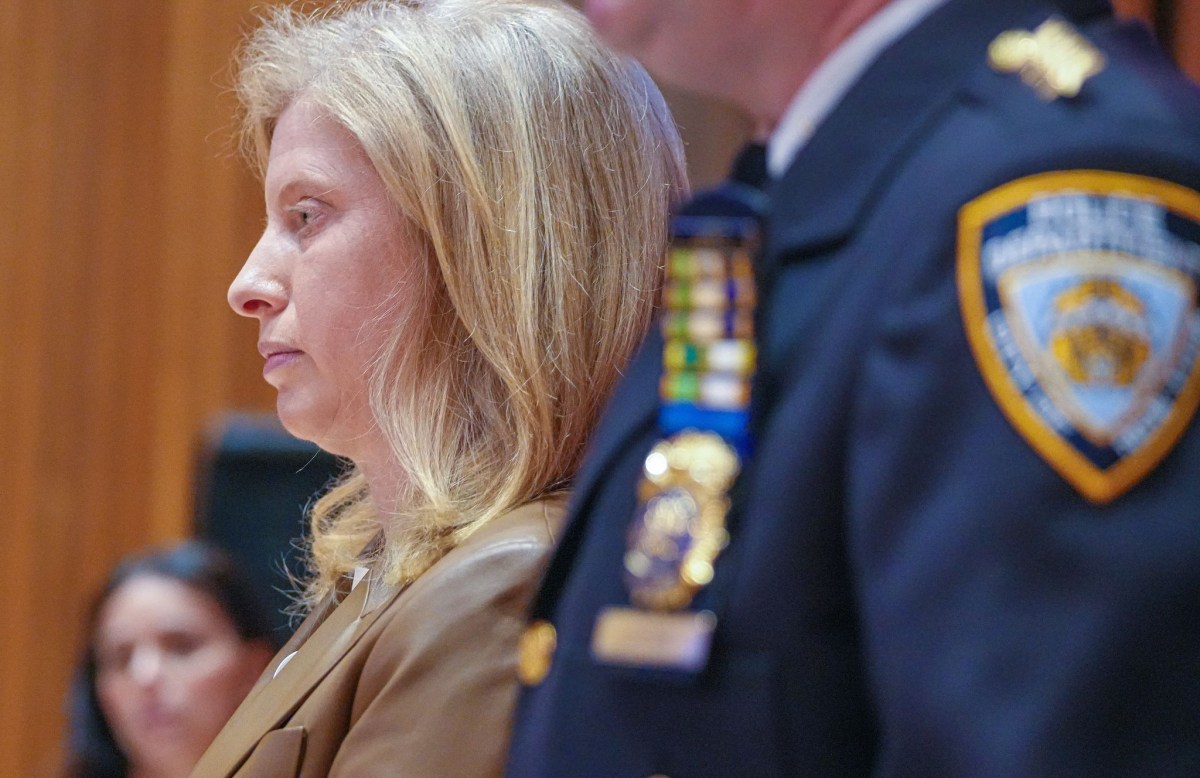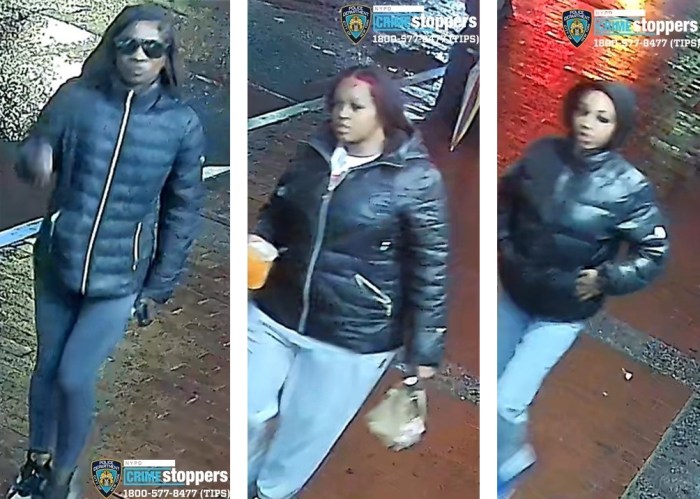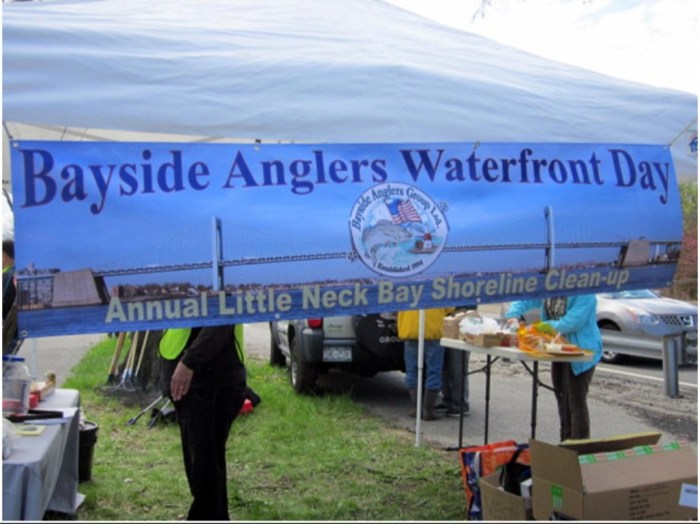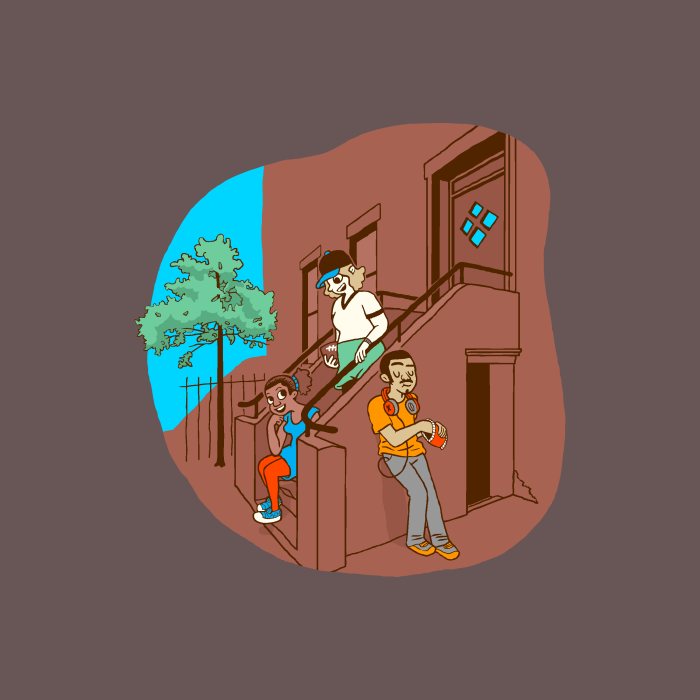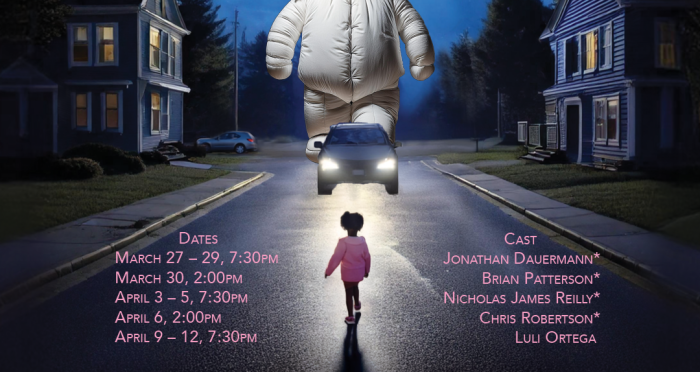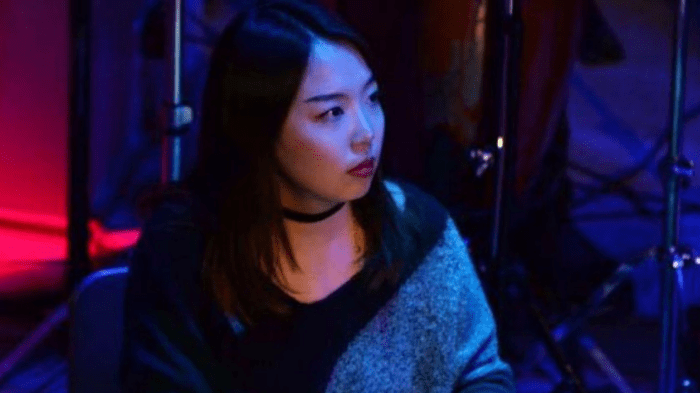By Mattlee Davis
Is it love or control? That is the question many teens are asking as a wave of violence in relationships approaches startling numbers. “Love Is Not Abuse,” a high school curriculum to make teens aware of the growing problem of abuse in relationships, was recently introduced to Leon Goldstein High School. “The goal is to let kids understand what a healthy relationship is and what it is not,” said Jane Randel, vice president of corporate communications for Liz Claiborne, Inc. which has funded the program. The school, located on the Kingsborough Community College (KCC) campus, was chosen as one of 442 schools in 42 states to be taught the program during the week of February 5 – 8. “A lot of abusive relationships center on power and control. Teens have different needs than adults,” said Randel. “Embarrassment holds them back. A lot of it is psychological. Most people love their partners. They just don’t want to be abused,” she added. The class was taught by Estelle Miller, director for the Center for Woman and Non-Traditional Students at KCC who spoke on abuse and how teens can get help. “Every week, at least three women come to me needing some sort of help to get out of abusive relationships. That’s at least one in five of the students at the college,” she said. According to a survey conducted by Teenage Research Unlimited (TRU) – at the request of Liz Claiborne, Inc. – a disturbing number of teens experience and accept abusive behavior in dating relationships. The problem gets worse as teens get older and into more serious relationships, the survey showed. One in four teens who has been in a serious relationship reported being hit, slapped or pushed by a partner. Many teens also feel physically and sexually threatened. In fact, one in three girls between 16 and 18 years old say sex is expected for people their age if they’re in a relationship, and half of girls who are pressured sexually report that they are afraid of the relationship ending if they do not give in. Miller told this paper of one of the most traumatic cases she has come across in her 22 years at KCC. She stated that a female student, who was married 12 years, was abused every day of her marriage. Her spouse refused to let her go for help or talk to anyone. But things took a toll when she became pregnant with her first child. “She suffered a beating so badly that they had to deliver the baby and it was born with some defects,” said Miller. However, when she enrolled at the college, she told someone there of her years of torture, and was brought to family court where she received an order of protection. “As soon as the husband heard that, he fled the country and she hasn’t seen him since,” said Miller. But according to the TRU survey, abuse can reach far beyond physical contact, and has become ‘technologically advanced.’ Cell phones and Internet have become weapons of teen dating abuse. The survey shows that one out of every three teens is text messaged 10-30 times an hour by a partner inquiring where they are, what they are doing or who they are with. “Kids don’t know what a healthy relationship looks like. Just because your partner is calling you all the time doesn’t mean they love you,” said Randel. According to Randel, although abuse knows no gender, race or age, it is predominantly perpetrated by males. But even more startling is the fact that the majority of parents have no clue of the problems their children face. The survey showed that 67 percent of parents were unaware that their teen was asked to have sex or engage in sexual acts through cell phone, email, IM, or text messages when they did not want to. “These girls are afraid to speak out. There is fear of humiliation and public shame. If they don’t know the path for adequate resources, they feel trapped,” said Catherine Granton, who attended the class. This is why the National Dating Violence Hotline and Liz Claiborne, Inc. partnered to launch the new 24-hour nationwide National Teen Dating Abuse Helpline (NTDAH) which began on February 8. The Helpline will include the first interactive dating abuse website. Staffed by both teen and adult advocates, teens ages 13-18 can now call toll free or write and immediately get assistance in a one-on-one private chat room. “I think to really break the cycle of violence, you need educators and everyone working together. We are apart of that effort. Help break the cycle,” said Randel. If you are a victim of abuse, you can call the Helpline at 866-331-9474 or log onto www.loveisrespect.org, or www.loveisnotabuse.com for more information.


